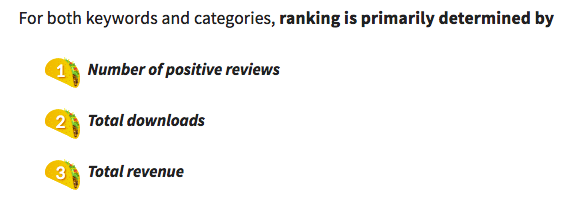
Google is the leader when it comes to search.
It’s obviously important to rank well on Google. Accomplishing the feat can bring traffic, leads and sales to a business.
Search Engine Optimization or SEO is the term for trying to rank well on Google.
A lot has been discussed on the topic, but ultimately the key to ranking is pretty simple, not easy, but simple.
Google says as much:
In Google Search, our goal is to help users quickly find the best answers to their questions.
Simple. Not necessarily easy.
There is also an element of the rich getting richer in the ranking world. You see this in Google a little bit, but also in the many other search engines out there.
Other Search Engines
I’m guilty of it…thinking about Google as the search engine.
But the reality is that people do a lot of searching on many different platforms.
YouTube has a huge number of searches.
So does Amazon.
Mobile apps.
Even apps like Netflix.
Now we have AI and bots like Amazon Echo.
We’re asking questions everywhere. And there are ranking lessons to be learned from them all.
Here are three tips we can learn from efforts to rank on Amazon. The rich getting richer seems to play an important role, but with work you can benefit even if you’re starting from scratch.
I cam across these tips in a great article about getting an ebook to rank well on Amazon.
I’m going to try to expand on these a bit to provide some more context for all search engines.
Tip #1. More Sales
People often buy from the largest seller in a market.
That seems obvious. There’s probably a reason that the largest seller is the largest. They probably do have one of, if now the, best product or service available.
But not always.
What seems to happen as a company gets big is the Bandwagon Effect.
Derek Sivers kind of wrote about this too in this post.
The video in that post is great. One guy is dancing in the park. Eventually one person joins in. Then things really start getting crazy and soon nearly everyone in the park is dancing.
It’s also kind of like the Rogers’ Bell Curve. You have early adopters. Then you start getting the majority and soon even the laggards are buying in.
An important aspect of the Bandwagon Effect is the idea of the safe choice. When it seems like a lot of people are buying something it’s easy for others to be convinced that making the same choice will be successful or safe.
It reminds me of being a kid and jumping off the train trestle into the lake. Whoever does it first is very brave. But as more kids do it the feat seems safer even though it probably isn’t.
Search engines, and you have to think this includes Google, understand the Bandwagon Effect. When a business is selling more than any of the competition it’s a huge indicator that they’re the most trustworthy and worthy of the highest ranking.
So if you want to rank well, a good initiative would be to sell as much as possible. It’s kind of strange to think. It would be nice to get the ranking first and then get the sales from the rankings.
But better approach might be to hustle in anyway possible for sales.
I heard Gary Vaynerchuk mention something interesting recently on this. He spoke with companies that would talk about doing $10 million in advertising. He would try to convince them to just give away $10 million in product.
I can see that working in the rankings. When you have $10 million of your product in the marketplace that could mean a lot of “sales” or customers. And that can lead to a lot of ranking indicators. A lot of potential bandwagoners.
Tip #2. More Reviews
These next two tips kind of build on the idea of sales as a ranking factor.
This one being that the more sales you get the more likely you are to receive more reviews.
I can’t say for sure, but I think it’s a common thing on Amazon. When I search for something that I want to buy I’ll look, sometimes without even realizing it, for the products with the most reviews.
Not necessarily the best reviewed product, but the product with the most reviews.
Why?
There are a few reasons.
First, a lot of reviews provides a lot of information. The more information you have about a product the better you can decipher if it’s the right choice for you. I don’t want to just see a bunch of 5-star reviews. I like reading the descriptions in the reviews. How people are using the product. What they like. What they don’t like.
Second, even negative reviews provide good insight. I think most of us overlook a negative review from an unreasonable person. Or maybe it was just a poor shipping experience. But some negative reviews can provide good insight. Say you want to buy a shirt and there are a few 3-star reviews saying the shirt runs a little off size. But everyone still loves the shirt. You could just buy accordingly based on those negative reviews.
The key takeaway here is similar to sales. There’s no big secret. You just have to hustle for reviews from everyone that buys the product. Asking in person. Emailing at the appropriate time (after the person has had the product). Even calling people via phone.
The more reviews you have online the more information the search engines have about you and your product and that’s always a good thing.
Tip #3. More Engagement
Finally, we have more engagement.
Sales and reviews are forms of engagement. Important forms.
But even those that aren’t buying from you can still engage with you. And that’s another indicator that you’re important. That people are paying attention to you. And engines look at engagement with an eye on the bandwagon effect.
Think of Top 40 music.
Not everybody likes the #1 song each week, but that song usually has the most engagement. Not only listens and views and streams, but discussion. Especially in the online world of today.
People are just usually discussing the top song each week.
That’s why in the book world the publisher tries to create a little controversy leading up to the book’s launch. They want to get people discussing and engaging around the book. They don’t necessarily care if it’s all positive. They just want people talking and engaging.
Why?
It helps get attention on the book and that attention also helps to improve important rankings. Whether it was Top 10 lists in newspapers and magazines in the past or if it’s top lists online today.
Conclusion
These ranking factors came from an article about selling a book on Amazon. But I think there is much to learn about ranking on any search engine from the tips.
Ranking is a simple concept.
The engines need to provide the best answers to the questions searchers are asking.
In terms of books, people are asking (with their actions) what book they should buy. Amazon has to provide the best answer so they look at human action. And humans often follow the leader. They jump on the bandwagon.
So use the tips when you’re trying to improve your rankings for your content or for your business or for whatever. They’ll work for just about any search engine.

